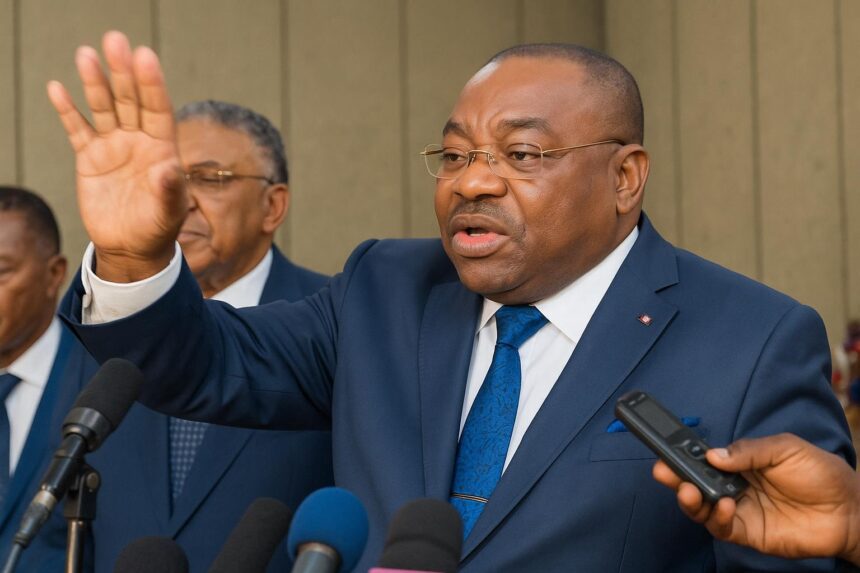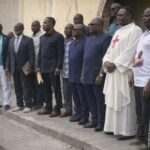Congo Media Oversight Mandate
The appointment of Médard Milandou Nsonga as president of the Conseil supérieur de la liberté de communication has reset the conversation around media regulation in the Republic of Congo, a sector that diplomats describe as pivotal for political stability and economic visibility.
Nsonga’s nomination, announced on 18 August 2025 and welcomed across party lines, follows the decade-long stewardship of Philippe Mvouo, who earned praise for maintaining pluralism while safeguarding national cohesion, according to local outlet Les Dépêches de Brazzaville.
The Union of Press Professionals of Congo, UPPC, promptly issued a communiqué congratulating the new chair and affirming its “fruitful partnership” with the regulator, signalling a readiness to engage constructively rather than confrontationally as media policy enters a new cycle.
UPPC Priority List for Press Reform
In its statement, UPPC highlights “a situation of concern” faced by Congolese outlets, ranging from precarious working conditions to inconsistent professional standards. The union insists that collective action is required to restore dignity to journalists and to enhance the reliability of news.
First on the agenda is the implementation of the 2018 Brazzaville press congress recommendations, a roadmap drafted with input from editors, lawmakers and international partners. Observers note that several of those proposals, particularly on ethics training, remain aspirational.
UPPC’s communiqué also urges faster issuance of press cards, regular audits of audience metrics, and continued dialogue with telecommunication operators to ensure equitable bandwidth allocation for online newsrooms. None of these measures, the union claims, requires heavy budgetary outlays, only administrative resolve.
Press Funding and the FAOP Mechanism
Congo-Brazzaville’s 2025 budget introduced a 600-million-CFA Fund to Support Press Outlets, FAOP, conceived to replace the discontinued audiovisual levy. The line item drew international attention, including a supportive nod from UNESCO’s regional office in Yaoundé.
UPPC welcomes the allocation yet worries about disbursement delays that could “mirror the fate of the former levy.” Analysts at the Congolese Economic Observatory point out that transparent eligibility criteria and quarterly reporting would bolster confidence among both donors and local publishers.
Government officials argue that the finance ministry is fine-tuning mechanisms to prevent misuse, a stance consistent with President Denis Sassou Nguesso’s public commitment to fiscal responsibility. “The funds will be operational within the fiscal year,” a senior Treasury source said on condition of anonymity.
For newsroom managers, timing is critical. “Many outlets operate month to month; even a modest grant stabilises payroll,” explained Armand Goma, editor of the Pointe-Noire daily Le Littoral, during a webinar hosted by the African Editors Forum earlier in September.
Gender Balance and Professional Standards in Regulation
While welcoming Nsonga’s arrival, the union voices regret that no woman was appointed to the new CSLC board. The observation echoes regional concerns about female under-representation in regulatory bodies, noted recently by the African Union’s Gender Directorate.
Government advisers counter that upcoming appointments in auxiliary committees will widen participation. A communications ministry official said the administration “remains committed to gender parity goals incorporated in national development plans,” pointing to rising numbers of women heading provincial stations.
Beyond representation, UPPC presses for stricter vetting of credentials when senior roles are filled. The concept, labeled “professional hygiene” by media scholar José Mabiala, seeks to avoid situations in which technical functions are entrusted to individuals lacking requisite training.
Diplomacy, Digital Challenges and Collaborative Paths
Diplomatic observers frame the current moment as an alignment of interests. The regulator desires credibility, the union demands capacity building, and the government sees international ratings of press freedom as a soft-power asset that can enhance investment appeal.
Recent statements by the European Union delegation in Brazzaville underline similar expectations. “Predictable regulation encourages credible journalism and investment in digital networks,” the delegation noted in an emailed response, adding that it stands ready to provide technical assistance once national priorities are clearly articulated.
UPPC suggests regular tripartite forums, including representatives from foreign missions and development agencies, to monitor progress and exchange expertise. Such gatherings, its communiqué argues, could prevent misunderstandings and keep reforms on schedule.
Digital transformation remains a cross-cutting theme. Smartphone penetration in Congo exceeded 41 percent last year, according to the regulator ARPCE, creating both opportunities for multimedia storytelling and challenges linked to disinformation. UPPC argues that fact-checking desks should form part of the CSLC’s modernisation agenda.
For now, the mood remains cautiously optimistic. Nsonga has signalled that his inaugural address, expected before the end of the quarter, will outline a “modernisation pact” with stakeholders. Whether the pact materialises may define the trajectory of Congolese media for years.
The UPPC, invoking its two-decade record of advocacy, pledges to serve as both partner and watchdog. “We will accompany the CSLC,” secretary-general Edouard Adzotsa affirmed during a Radio Congo segment, “because a thriving press is a national imperative, not a corporate privilege.”
For observers, success will hinge on sustained political will and measurable milestones.





















